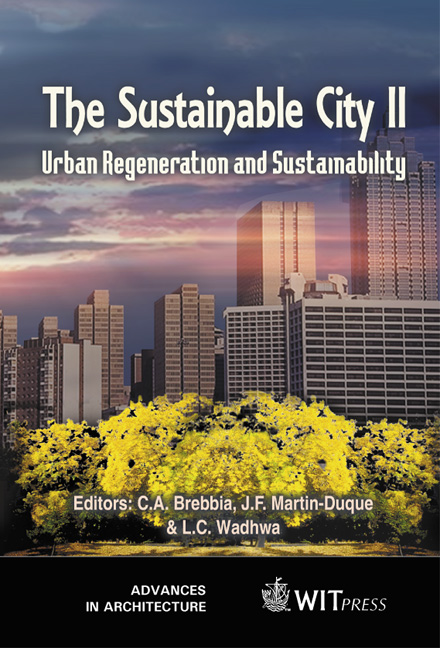Measuring Sustainability At The Communal Level
Price
Free (open access)
Transaction
Volume
54
Pages
Published
2002
Size
350 kb
Paper DOI
10.2495/URS020191
Copyright
WIT Press
Author(s)
T Corbière-Nicollier & O Jolliet
Abstract
In Switzerland, local communities are encouraged to apply the sustainable development principles in Agenda 21. An essential question for city planning and management is: Agenda 21 offers many possibilities for action. How to establish priorities in a coherent way? This project aims at developing a straightforward tool, usable at the communal level, to determine the socio-economic and environmental impacts of various alternatives in order to set sustainable development priorities. The study is based on the case of three communities: Lausanne, Vevey, and Essertines/Yverdon. Each city has its own social structure which influences local practices. These practices affect sustainable development performances. The link between society and practice can be studied through sociological analyses. The first observations indicate that, the older the people, the more they tend to separate their waste, to be informed of the environmental impacts of their behavior and, more generally, to be informed of the city life. The link between practice and performance can be established thanks to flow analyses and Input/Output analyses. One of the main key performance indicators selected for a first screening of the link between practice and performance is an environmental indicator: primary non-renewable energy, expressed in "energy slaves". As a case study citizen energy consumption has been studied. A Swiss citizen needs 20 slaves for his private consumption of goods and services, 19 for housing, 11 for transport, 11 for food and 8 for his consumption of public goods.
Keywords





